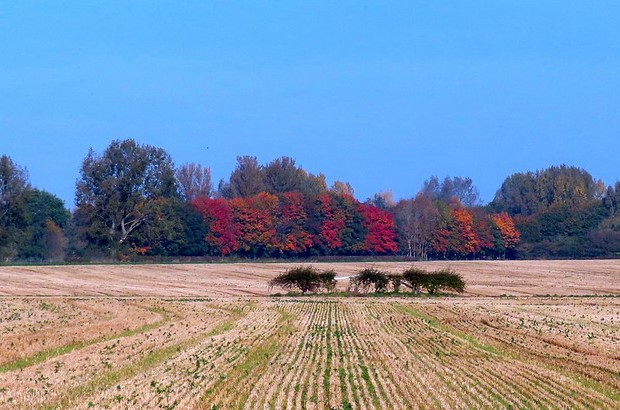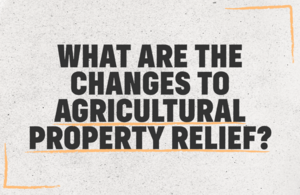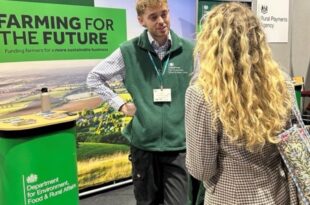
Integrated Pest Management (IPM) is a whole-farm approach that uses all available methods to prevent, monitor, and control pests, weeds and diseases.
It can help manage pesticide resistance and minimise the risks of environmental harm by targeting application and making use of non-chemical alternatives.
IPM is not a fixed set of practices but a flexible approach to help you make the best decisions for your farm.
It blends farming skills, conventional wisdom and approaches with the latest technology and scientific research and development.
To help farmers, growers and land managers adopt different IPM approaches, we’ve published a new guidance page on GOV.UK. This post includes a link to the new guidance page and background on IPM.
Guidance
The new guidance page on GOV.UK provides practical information to help you increase your use of IPM approaches.
It includes:
- the aims and principles of IPM
- examples of what it means in practice
- tools which can support planning and decision making
- how to be paid to do IPM through the Sustainable Farming Incentive (SFI). There are 4 paid actions for IPM and 3 paid actions for precision farming available through SFI. We have included more detail below about how to apply for these actions.
- further external IPM guidance
Video series coming soon
In collaboration with ADAS, a new series of videos will be launched in January.
14 videos will bring to life the science behind IPM and showcase best practice for managing diseases in cereals.
The videos will focus on:
- crop production and plant disease epidemics
- disease control methods
- managing fungicide resistance
- environmental considerations
The videos appear weekly along with related IPM content and will be hosted on the ADAS YouTube channel. ADAS produced a PDF which goes into more detail.
The new UK Pesticides National Action Plan will be published next year and will set out the government’s strategy for sustainable use of pesticides.
The Sustainable Farming Incentive
As mentioned above, within the Sustainable Farming Incentive (SFI)’s 102 actions, there are payments for carrying out specific IPM actions.
For example, £1,129 will be paid for action CIPM1: Assess integrated pest management and produce a plan (the payment is for the assessment and plan per year).
Other actions, which you can find on the FIND tool cover:
- creating habitats for natural crop pest predators
- using companion cropping to suppress weeds, reduce diseases and provide protection from crop pests
- minimising use of insecticides
- precision farming
You no longer need to complete the expression of interest meaning applicants no longer need to wait to be invited to apply by the Rural Payments Agency (RPA).
Case study
Emma Hamer, a Farmer and Voluntary Initiative (VI) champion, from Meadowsweet farm in Oxfordshire shares her approach:
“My husband and I have a small beef and arable farm on the Oxfordshire – Warwickshire border. We are both BASIS qualified and NRoSO registered and keep up to speed on IPM research through continuing professional development (CPD).
We do all we can to maximise crop pest predator numbers or ‘beneficial insects’ through creation and maintenance of habitats where they thrive. We practice regenerative agriculture, establish crops with a direct drill, grow cover crops, have wide margins and hedges around most fields which also provide a refuge for these beneficials.
Having a beef herd allows us to have a wide rotation. When there is a black grass problem in a field, we can put it down to grass or grow a herbal ley or grazeable cover crop to try to reduce the weed pressure. Similarly, when weed burdens become a problem, possibly through herbicide resistance, we have the option to bury weed seeds and create a clean seed bed.
Our philosophy with pesticides is to use as little as possible, and only as much as is necessary. By walking crops regularly, and working with our agronomist, we usually manage this and haven’t used an insecticide for many years – but sometimes the use of an appropriate intervention in the form of a pesticide is crucial to our integrated approach to pest, weed and disease management.”






 The
The 
2 comments
Comment by Paul posted on
Do the Integrated Pest Management and Nutrient Management plans have to be completed by a Basis and Facts advisor?
There is only 1 provider of that certification to advisors and farmers, which operates as a monopoly - not only in initial registration but also in annual membership costs.
Provided that the recognised industry guidance (such as Tried and Tested or Voluntary Initiative) is followed in producing such plans, why can farmers and experienced (though not necessarily certified) advisors, not complete the assessments themselves ?
Comment by The Team posted on
Hi Paul,
Thank you for your question. Yes, for the SFI IPM 1 action, ‘Assess integrated pest management and produce a plan’, you must arrange for a member of the BASIS Professional Register who is qualified with the relevant BASIS Certificate in Crop Protection (a ‘BASIS qualified adviser’) to complete an IPM assessment and help you produce a written IPM plan.
Evidence shows that those who actively seek IPM information from multiple sources, including engagement with an agronomist, are more likely to adopt IPM approaches.
Similarly, for SFI NUM1 ‘Assess nutrient management and produce a review report’, you must arrange for a member of the BASIS Professional Register who’s qualified under the Fertiliser Advisers Certification and Training Scheme (a ‘FACTS qualified adviser’) to complete the NM assessment and help you produce a written nutrient management review report. The payment rates include costs associated with what you must do, including the input from a suitable qualified person.
We recognise that if the farmer/agreement holder is BASIS or FACTS qualified, they can complete the actions by themselves. If you do not have IPM1or NUM1 included in a SFI agreement, you do not need to arrange for a BASIS or FACTS qualified adviser to help you produce a written IPM plan or a written nutrient management review report.
Best wishes,
The Team